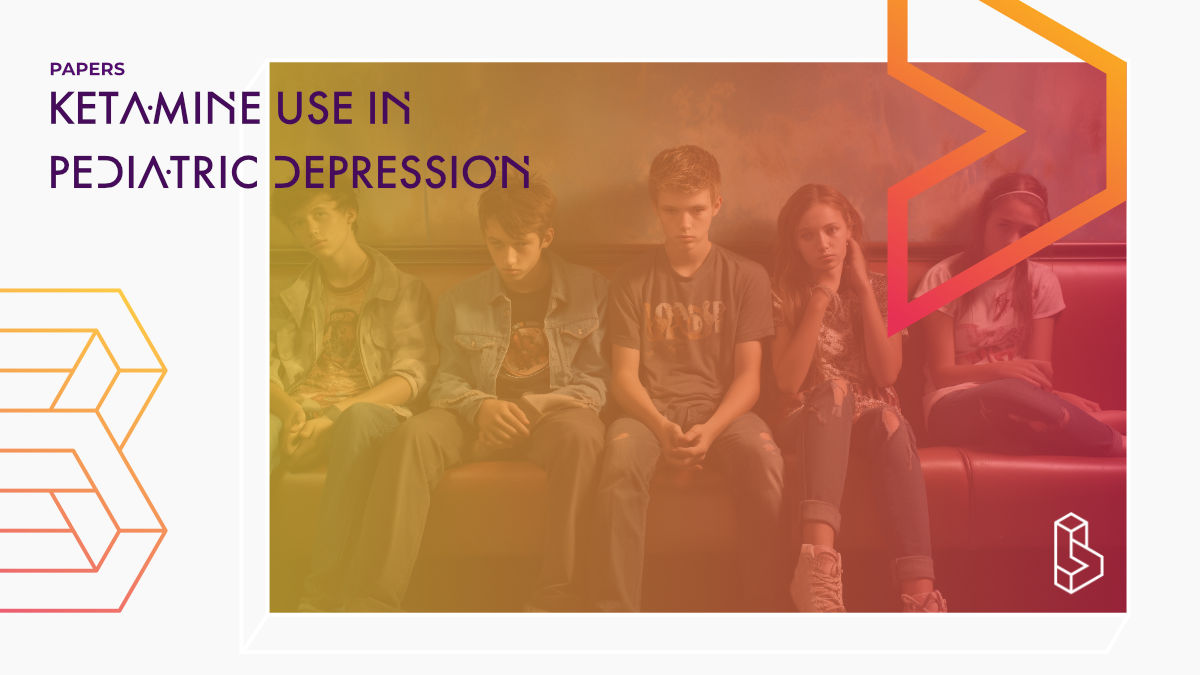This systematic review (n=46; s=6) examined the efficacy and safety of ketamine for the treatment of pediatric depression (mean age=15.7 y/o). Findings suggested that ketamine, administered intravenously at doses ranging from 35mg/70kg to 140–490mg/70kg, significantly reduced depressive symptoms without severe adverse events.
Abstract of Ketamine use in pediatric depression
“Pediatric depression is a common psychiatric disorder that is associated with significant morbidity and mortality. Ketamine is a non-competitive N-methyl-D-aspartate (NMDA) receptor antagonist with demonstrated antidepressant effects in the adult population, however, the efficacy and safety of ketamine for the treatment of pediatric depression remains poorly understood. Electronic databases were searched from inception to June 2022 to identify relevant articles. Six articles involving 46 participants with a mean age of 15.7 years were included in this systematic review. Out of six articles, three were case reports, one was a randomized clinical trial (RCT) and two were open-label trials. All studies used 0.5 mg/kg intravenous ketamine except for one, which used 2–7 micrograms/kg. Ketamine was significantly associated with reduced depressive symptoms without severe adverse events. Taken together, the results of these studies demonstrated the potential role of ketamine for treating pediatric depression. Several important limitations were identified, most notably the small sample sizes of the component studies, and that all studies administered intravenous ketamine. Further studies with larger sample sizes and different administration modalities are needed to better determine the efficacy and safety of ketamine in pediatric depression.”
Authors: Shakila Meshkat, Joshua D. Rosenblat, Roger C. Ho, Taeho G. Rhee, Bing Cao, Felicia Ceban, Kevork Danayan, Noah Chisamore, Joshua D. Di Vincenzo & Roger S. McIntyre
Summary of Ketamine use in pediatric depression
Major depressive disorder (MDD) is a prevalent mood disorder in young people and a major public health concern. It is linked to poor social and academic functioning, physical illness, and risky health behaviours.
Pediatric depression is treated with a multimodal strategy that combines psychotherapy and pharmacotherapy. Unfortunately, effective treatments in adults only have a limited success rate or are unsuitable for use in children.
Ketamine is a non-competitive N-methyl-D-aspartate (NMDA) receptor antagonist that can be used to treat depression. It has been demonstrated to have immediate therapeutic effects, unlike many other antidepressants, and a very short treatment course can provide relatively long-term effects.
Find this paper
Ketamine use in pediatric depression: A systematic review
https://doi.org/10.1016/j.psychres.2022.114911
Paywall | Google Scholar | Backup | 🕊
Cite this paper (APA)
Meshkat, S., Rosenblat, J. D., Ho, R. C., Rhee, T. G., Cao, B., Ceban, F., ... & McIntyre, R. S. (2022). Ketamine use in pediatric depression: A systematic review. Psychiatry Research, 114911.
Study details
Compounds studied
Ketamine
Topics studied
Adolescence and Psychedelics
Depression
Study characteristics
Literature Review
Participants
46
Humans
Compound Details
The psychedelics given at which dose and how many times
Ketamine 0.5 - 0.5mg | 1x

